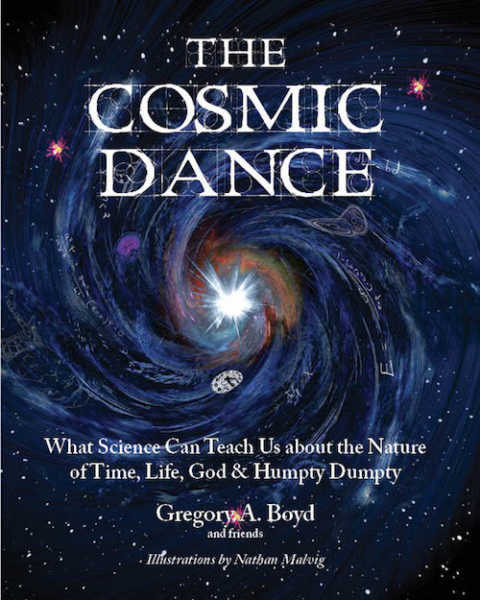We run our website the way we wished the whole internet worked: we provide high quality original content with no ads. We are funded solely by your direct support. Please consider supporting this project.

Roger Olson’s Review of The Cosmic Dance
Today we wanted to share a review of The Cosmic Dance by esteemed theologian Roger Olson. You can check out an excerpt below or you can read the whole review here. You can place an order for The Cosmic Dance here.
The Cosmic Dance is Greg’s (and friends’) attempt to present the case that the best contemporary science supports viewing time as an “arrow” such that an omnipresent being (such as the God of traditional Christianity) would not “already be” in the future or “still be” in the past but would experience the future as not yet and the past as no longer available. In other words, the book argues, using numerous quotations from and references to modern and contemporary physics, that relativity theory, as understood through post-Einsteinian physics, supports an “open view” of the universe and the future in which real novelty and spontaneity characterize events within an overall interconnected whole of reality.
When I read a book I often try to find a key paragraph that sums up its main “big idea” or single most important thesis. Here is my candidate for that in The Cosmic Dance: “In this book we’ve argued that Quantum Theory, Chaos-Complexity Theory and Non-equilibrium Thermodynamics suggest that a fully deterministic description of the world is impossible, and that time and novelty are more than mere illusions. We’ve argued that even Relativity Theory gives a role to time that is very different from space. This all suggests that reality moves from a settled past into a partly open future.” (184) …
I can heartily recommend this book for the pictures if nothing else! Seriously, however, if you are interested in reading a case made from science that time is “for real” and not illusory, and that although time and space are, indeed, inter-related that does not mean an omnipresent being must somehow already be “in the future,” buy the book.
Category: General
Tags: Open Theism, Roger Olson, The Cosmic Dance
Related Reading

What is the significance of Isaiah 5:3–7?
The Lord describes Israel as his vineyard. Referring to himself, he says that the owner of the vineyard loved his vineyard and did all he could to care for it. “[H]e expected it to yield grapes, but it yielded wild grapes” (vs. 2). Then the Lord asks, “What more was there to do for my…

What is the significance of Acts 27:10-44?
This is the passage deal with Paul’s ill-fated voyage to Italy as a prisoner. The ship ran into very bad weather and Paul announced, “Men, I can see that our voyage is going to be disastrous and bring great loss to ship and cargo, and to our own lives also” (vs. 10). As he reminded…

Greg on the Open View: Video One
By popular demand, we’re sharing the first of Greg’s video presentations on the Open View of the future. If you enjoy it, you can find the rest of the series entitled A Flexible Sovereignty: A Biblical Understanding of Providence and the Nature of the Future by clicking here. This video was recorded in 2008 at Azuza…

Good From Evil
The Bible is very clear that God has nothing to do with evil. There is “no darkness” in God. (I Jn 1:5). Far from intentionally bringing about evil, God’s “eyes are too pure to look on evil” (Hab. 1:13). All evil, therefore, must be ultimately traced back to decisions made by free agents other than…

Response to the September 11th attacks
Was God Punishing Us? Since the attacks on the World Trade Center and the Pentagon on September 11th, many people have asked the question, “Why did God allow this to happen?” In response, some Christian leaders have suggested that God was punishing our country for reaching an all-time low in moral behavior. As one well-known…
